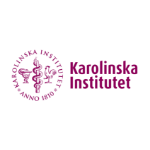COVID-19 Rapid Response Innovation Project
Nanoporopus silicon for next generation immuno-proteomic investigations
The challenge
The current standard to test for the virus that causes COVID-19 is time consuming and not completely reliable, because it is difficult to keep the sample from degrading after it is taken. What is needed is a more sensitive and stable test that can accurately identify asymptomatic carriers of the virus as well as those who may have achieved immunity. This test should be applied with due consideration for ethics and privacy issues, and it should be followed up with telemedicine.
The solution
This project will provide a more sensitive means of diagnosing COVID-19 with a paper-based test that combines innovations in two technologies: use of nanoporous silicon and an immuno protemic, or protein-based, test. The nanoporous silicon improves the ability of the test to capture tell-tale biomarkers that indicate infection, while keeping those biomarkers stable. The technology involved in the test will allow for diagnosing even low concentrations of viral infection, as well as giving prognostic information that can help in patient management. Along with developing an improved method of testing, this project will also include a solution to allow for informed consent to the technology, ethical implementation and integration of telemedicine to care for patients.
Expected impact
Better, more accurate tests for COVID-19 are essential to battling the pandemic and to providing better care for each individual patient. While improving diagnosis that helps fight the pandemic, this project also implements protections for patients.
All Partners
EIT Health members
- INSERM – French National Institute of Health and Medical Research
- Université Grenoble Alpes (UGA)
- Karolinska Institutet
External partners
- BIOTEM
- VIZYON
- Medimprint
Members

CLC/InnoStars: France
Partner classification: Research, Tech Transfer, Clusters, Other NGOs
Founded in 1964, the French National Institute of Health and Medical Research (Inserm) is a public scientific and technological institute which operates under the joint authority of the French Ministry of Health and French Ministry of Research. As the only French public research institute to focus entirely on human health, in 2008 Inserm took on the responsibility for the strategic, scientific and operational coordination of biomedical research. This key role as coordinator comes naturally to Inserm thanks to the scientific quality of its teams and its ability to conduct translational research, from the laboratory to the patient’s bed. Inserm plays a leading role in creating the European Research Area and boosts its standing abroad through close partnerships (teams and partner laboratories abroad). Inserm is active in many areas, such as Technologies for Health, Public Health (Cohorts, Healthcare systems), Infectious and chronic disease, Neurosciences, Cancer, and Genomics.
INSERM - French National Institute of Health and Medical Research
INSERM - French National Institute of Health and Medical Research, 101 Rue de Tolbiac, 75013 Paris, France
Key Activities in Corporate Innovation
Pharma, Med Tech, ICT, Diagnostics, Imaging, Nutrition
Key Activities in Social Innovation
Healthcare provision
Key Activities in Business Creation
Incubation, Technology Transfer
Key Activities in Education
Medical faculties, Healthcare professional education/training


CLC/InnoStars: France
Partner classification: Education, Research, Tech Transfer, Clusters, Other NGOs
The UGA in Grenoble is a leading University of Science Technology and Health. Within 80 multidisciplinary laboratories, the UGA is developing outstanding research at national and international level. The UGA offers a wide range of training courses, from bachelor to doctorate, in close connection with the socio-professional environment to promote the integration of its students.
Université Grenoble Alpes (UGA)
621 Avenue Centrale, 38400 Saint-Martin-d'Hères
Key Activities in Research and Developement
Biomedical engineering, Life science, Social sciences /health economics
Key Activities in Corporate Innovation
Pharma, Med Tech, ICT, Diagnostics, Imaging, Nutricion
Key Activities in Business Creation
Incubation, Technology Transfer, Business coaching
Key Activities in Education
Entrepreneurship training, Technical faculties, Medical faculties, Healthcare professional education/training


CLC/InnoStars: Scandinavia
Partner classification: Education, Research
Karolinska Institutet is one of the world's leading medical Universities. Our mission is to contribute to the improvement of human health through research and education. Our research covers the entire medical field, from basic molecular biological research, to clinical epidemiology and nursing science. Since 1901 the Nobel Assembly at Karolinska Institutet has selected the Nobel laureates in Physiology or Medicine. With our close relationship to the clinical world, a well-established infrastructure, a unique innovation system and financial stability, Karolinska Institutet has excellent prerequisites for sustaining high-quality research and education.
Key Activities in Corporate Innovation
Pharma, Med Tech, Diagnostics, Imaging, Nutrition
Key Activities in Social Innovation
Healthcare provision
Key Activities in Business Creation
Incubation, Technology Transfer, Business coaching, Testing & Validation
Key Activities in Education
Entrepreneurship training, Medical faculties, Healthcare professional education/training
